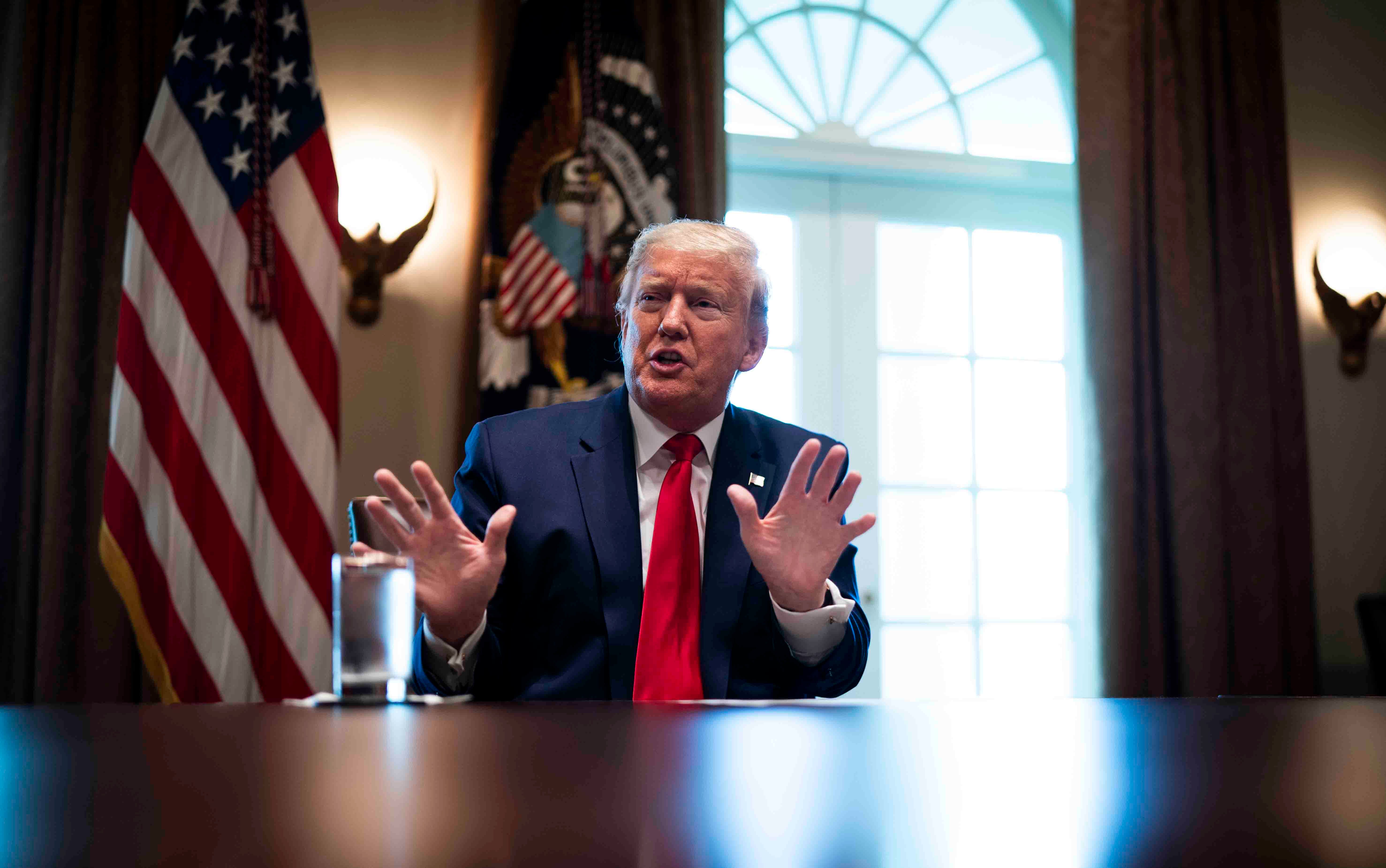
Doug Mills-Pool/Getty Images
Donald Trump is heading back to the Middle East. His plan to bring the Gulf states’ petrodollars flowing to the US could be a bit more complicated than the last time he was in office.
On Tuesday, the president is due to touch down in Saudi Arabia’s capital to kick off the first bilateral overseas trip of his second term. Over a three-day period, he’s expected to crisscross Qatar and the UAE too in the hope of securing deals — lots of deals.
Trump’s dealmaking ambitions will be in particular focus in Riyadh at the Saudi-US Investment Forum. Saudi Arabia’s crown prince, Mohammed bin Salman (MBS), pledged in January to invest $600 billion in the US over a four-year period. Trump will want to see these pledges realized, fast.
Others hoping to see promises turn to action will be America’s business and tech elite, who will also attend the investment forum and rub shoulders with the kingdom’s power brokers. Nvidia’s Jensen Huang, BlackRock’s Larry Fink, and Blackstone’s Stephen Schwarzman are all billed as speakers. So are Google’s CFO Ruth Porat and the White House’s AI czar David Sacks. Reports say Elon Musk, Sam Altman, and Mark Zuckerberg might turn up, too.
During his 2017 visit to Saudi Arabia, Trump signed agreements totalling hundreds of billions of dollars. But if Trump expects cash to flow as freely as it did when he last courted the Middle East’s oilmen, he’ll want to examine the motivations and realities facing the region’s elite.
Trump’s balancing act in the Gulf
Nations like Saudi Arabia have had good reasons to ramp up overseas investments. Taking stakes in American companies and sectors seen as crucial to future development, such as AI, has been a key strategy for diversifying oil-dependent economies.
Much of this investment has been easy to pull off thanks to the vast sums of capital managed by the region’s sovereign wealth funds. Saudi Arabia’s Public Investment Fund, estimated to have assets under management of over $900 billion, has been a key source of capital for the West, including a $3.5 billion investment in Uber.
This was particularly the case after Trump made a high-profile trip to the region in 2017. The world had not yet been engulfed by a pandemic that would eventually trigger a tightening in monetary policy; war in Gaza had not yet torn the region apart, either.
But since Trump’s last term in the White House, things have changed for Middle East nations that could now factor into their decision-making around investments. Take a look at Saudi Arabia.
Falling oil prices
While investment appetite remains — Saudi Arabia’s investment minister, Khalid Al-Falih, indicated as much during a panel at the Milken Institute this month — the country is grappling with oil prices dropping to a four-year low this year.
This has put pressure on Saudi Arabia to invest more of its money into domestic efforts, such as the struggling giga-projects like Neom that form the basis of MBS’s Vision 2030 economic agenda, rather than flooding overseas companies in the US with cash.
It’s a direction Saudi Arabia already seemed to be heading in, with the PIF’s governor, Yasir Al-Rumayyan, indicating in October last year that the sovereign wealth fund’s international investments would eventually comprise 18-20% of its investments, versus 30%.
AI bets
A country like Saudi Arabia has good reason to continue seeking investment opportunities in the US as it seeks to establish itself as an AI powerhouse.
Karen Young, a senior fellow at the Middle East Institute think tank, told Business Insider that since Trump’s last visit, the Gulf states have “transformed their position within the global political economy as important sources of investment in new technology like AI.”
That’s boosted the Gulf states’ “ability to attract American private equity investors as partners in global infrastructure, including in the energy sector across fossil fuels and renewable energy,” Young added.
But companies presented with money from the Middle East may find some strings attached not there before. Since January 2024, a rule has been in force requiring any company wishing to do business with Saudi Arabia to set up its region headquarters there.
Securing Gulf money, then, may not be quite as straightforward as it once was, despite all the big commitments announced to herald Trump’s second term. However, there have also been signals — including reports that Qatar plans to gift a luxury jet to replace Air Force One — that Gulf states are very keen to do business with Trump.
“All the Gulf leaders have shown a strong willingness to engage intensively with Trump and to align more closely on economics and national security with the United States,” Ian Bremmer, the founder and president of research and advisory firm Eurasia Group, told BI.
Deals can almost certainly be expected this week. How easily they come about is another matter.
The post Why Trump’s Middle East trip is going to be very different this time appeared first on Business Insider.




